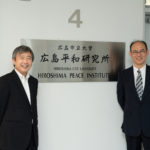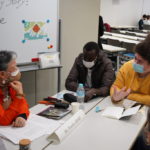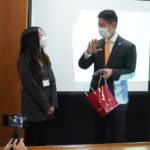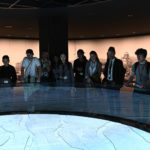Sohachi Aniya, Professional Baseball Player Who Kept Pitching in Okinawa and Hiroshima
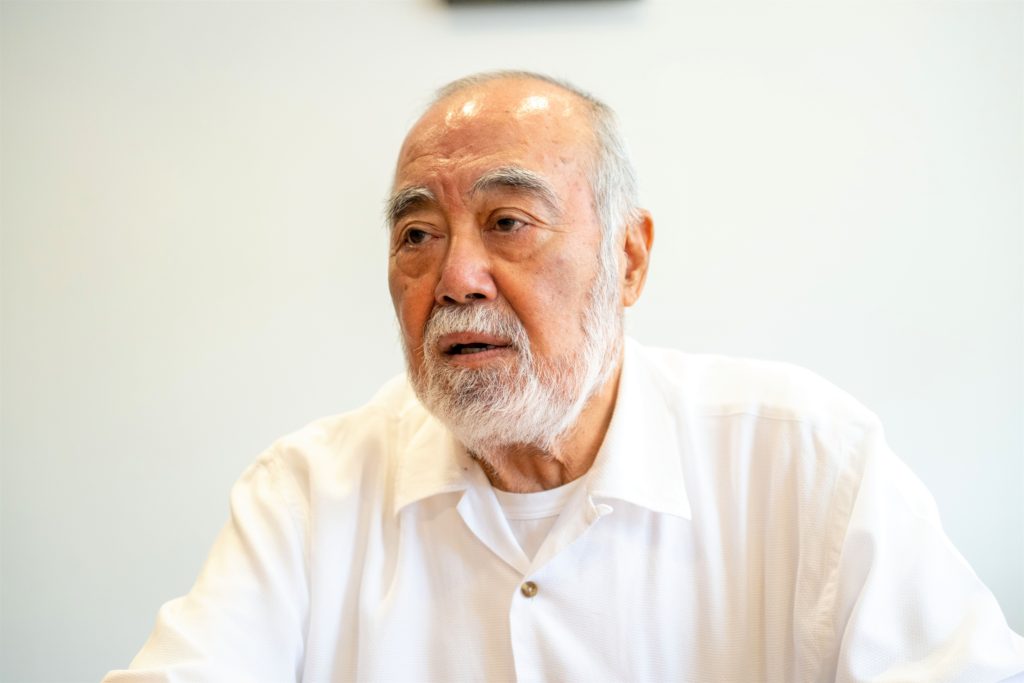
Sohachi Aniya is a former pitcher for the Hiroshima Toyo Carp who still continues to captivate many fans with his signature gray beard, mild tone of voice, and comments that reveal his love for Hiroshima and the Carp. He is still based in Hiroshima and thriving in many capacities, including as a professional baseball commentator and popular radio personality. We had a chance to sit down and speak with Mr. Aniya, who has walked hand-in-hand with Hiroshima in the post-war era since joining the Hiroshima Toyo Carp in 1964 as the first professional baseball player from Okinawa.
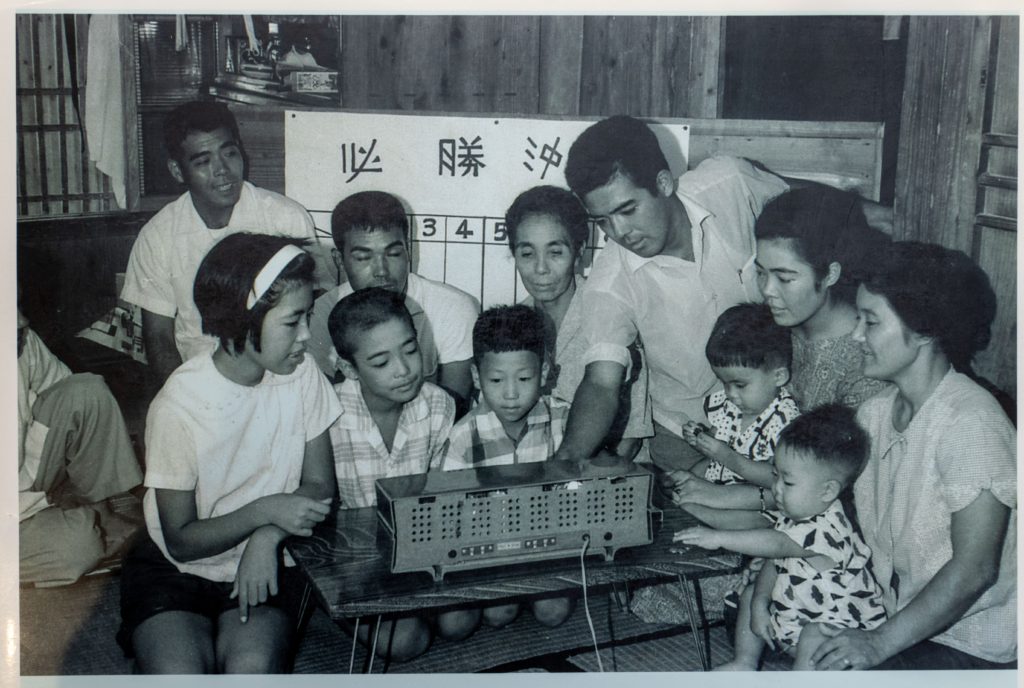
His nuclear and extended family would gather around a radio and eagerly listen to matches that Mr. Aniya pitched in
“My plan was to return to Okinawa as soon as I was finished with my playing career. One thing led to another, and here I am now, still working at this age and proud to call myself a grandfather. My greatest joy in life has become strolling around Peace Memorial Park together with my grandson.”
Mr. Aniya first set foot on Honshu during the summer after he turned 18 years old when he managed the feat of representing Okinawa Prefecture in the National High School Baseball Championship of Japan.
“In the post-war period, there were many US troops in Okinawa. It could be that the popularity of baseball is part of the culture in Okinawa for this reason, but this did not change how ordinary people were living. We would pick up sticks of wood that were lying around and use them as bats. Obviously, we did not have gloves. Despite these challenges, baseball was still fun. I remember being more impressed that I was able to ride a steam train for the first time and see how impressive the atmosphere was at Koshien Stadium than I was about the fact that I could play in the National Championship.”
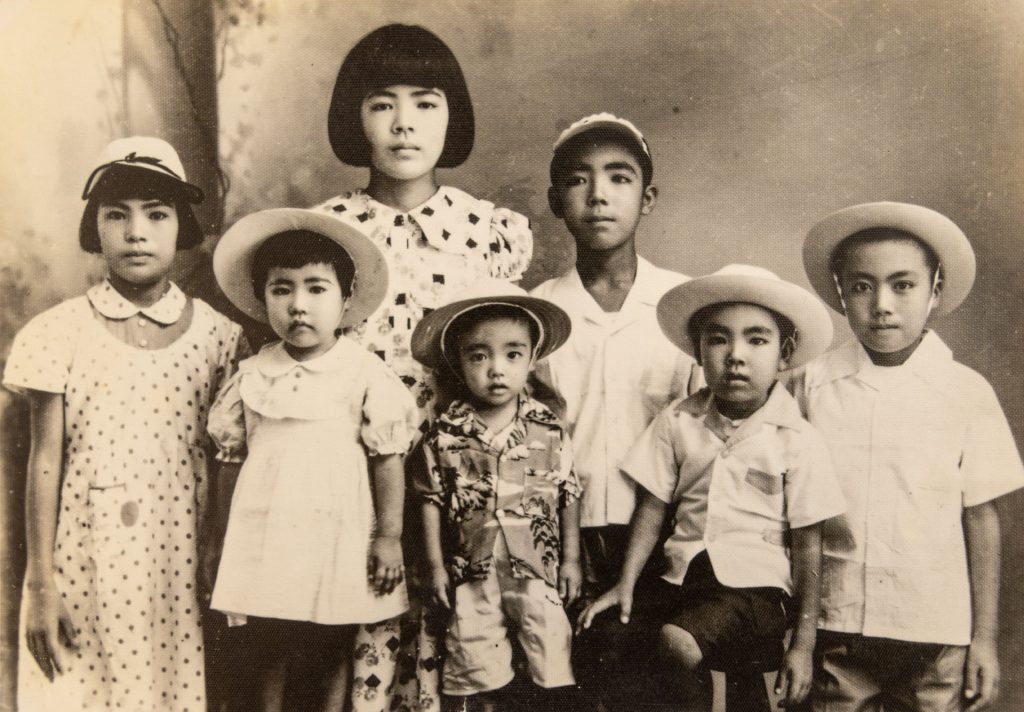
Mr. Aniya (far right) in a commemorative photo with his siblings
Mr. Aniya was born in August 1944, a year before Okinawa would end up as the site of intense warfare.
“I myself have no recollection of the war, and nobody, including my parents, wanted to talk about it. I think it was so miserable that they do not even want to think back on it. It felt as though it was taboo for people to talk about it, even if they were friends. Actually, it may be more accurate to say that the thought did not even occur to talk about it. I only started to learn about the war in earnest when I arrived in Hiroshima.”
Soon after being born during World War II, he evacuated to Oita in Kyushu with all members of his nuclear and extended family in the boat owned by his grandfather and father that they had to row themselves. Even though he started to hear about the wartime conditions and struggles after the war, apparently nobody wanted to talk about the war, as one may expect.
“I arrived to Hiroshima, and there was the Hiroshima Peace Memorial (Atomic Bomb Dome) right in front of the stadium (First Hiroshima Municipal Stadium) at the time, right? Looking at this memorial, I started to think carefully about the atomic bomb and the war for the first time. I was going from the club’s boarding house in Misasa Town (Nishi Ward, Hiroshima) to the stadium on the streetcar every day, so I would always see the Hiroshima Peace Memorial.”
Looking back on how Hiroshima was when he arrived for the first time at the age of 19, around 20 years after the end of the war, Mr. Aniya says that it was a beautiful verdant city. Even though it was said that it would not be possible for plants to grow in Hiroshima for 70 years after the war, it had recovered so much that this young man was amazed at how nice it was upon first view.
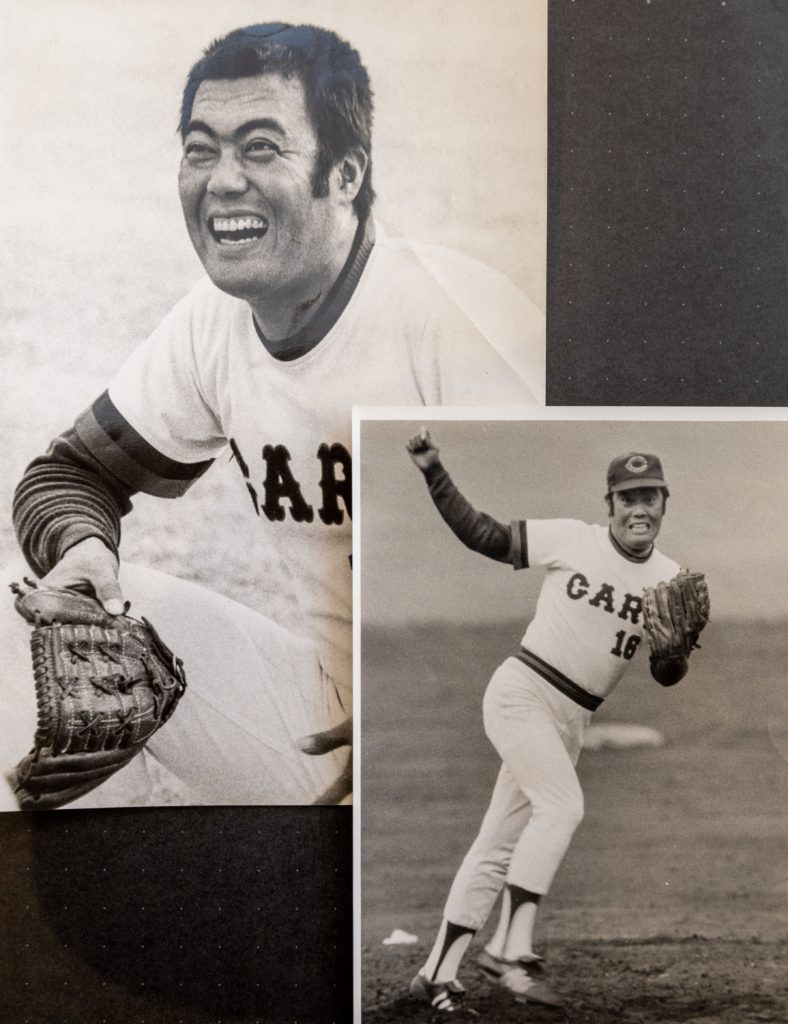
“I still go out to eat with Yoshinori Hirose (from present-day Hatsukaichi), who is a fellow commentator and successful former player for the Nankai Hawks. He also experienced the war and mentions that the atomic bomb was remarkable, as he saw a huge plume of smoke rise above the city of Hiroshima. It feels as though we can finally talk about the war and the atomic bomb now that all of these years have passed. Since I joined the Carp, I had many colleagues who knew about the war and the atomic bomb. However, perhaps because they were being considerate about the fact that I was from Okinawa, they hardly spoke about the war.”
Although the city of Hiroshima has recovered in an astonishing manner, and the lives of its citizens have become more stable, the emotional damage and trauma from the war and the atomic bomb remain no matter how many years pass. It could be that the people of Hiroshima have continued to support the Carp passionately to forget about these scars.
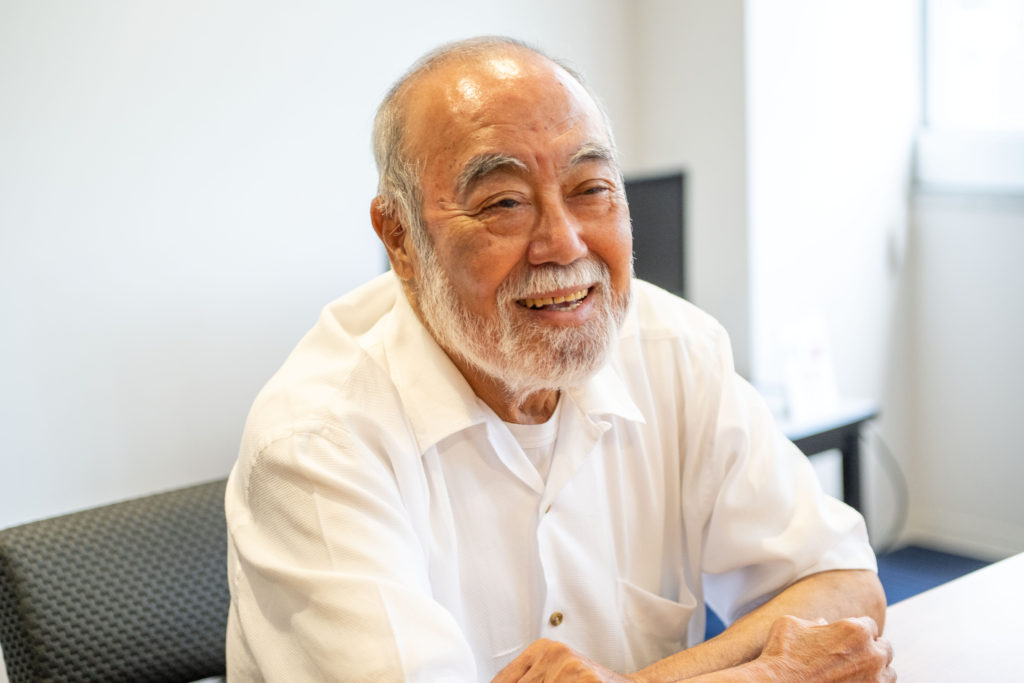
“There are many people in Hiroshima who are very kind. At the time, I had just arrived from Okinawa and could hardly speak the standard Japanese dialect, but Kohei Matsuda (second owner of the Carp), who was the owner at the time, would casually strike up conversations with me. There was also Masashi “Fever” Hirayama, who scouted me and acted like a second father to me. Of course, I cannot forget about all of the fans. Therefore, I am trying to repay Hiroshima for all it has done for me. We still have wars and atrocious events unfolding around the world today. We have to deal with issues such as nuclear warheads and the bases in Okinawa. However, these issues do not occur in the world of baseball, soccer, and other sports, and there are no national boundaries, of course. Therefore, I hope to share how wonderful peace, Japan, and Hiroshima are through the medium of sports.”
Sohachi Aniya
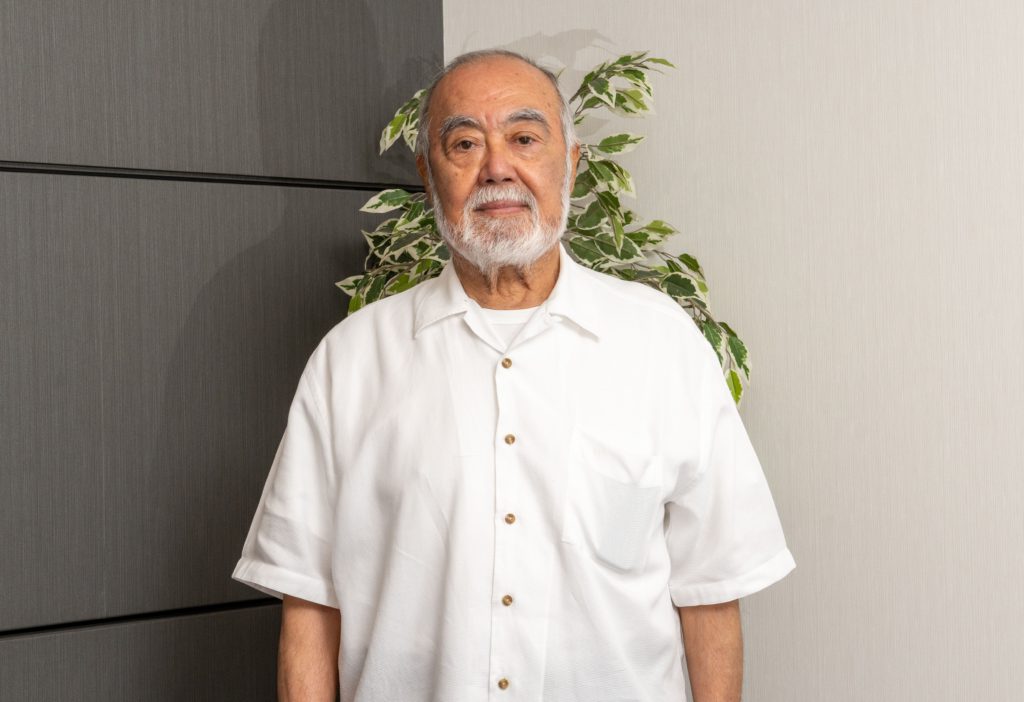
Born in Okinawa Prefecture in 1944. Participated in the 1962 National High School Baseball Championship of Japan as a representative of Okinawa Prefecture, which was still under US control at the time. Joined the Hiroshima Toyo Carp in 1964 as the first professional baseball player from Okinawa Prefecture. Since finishing his playing career in 1981, has filled various positions, such as coach for the Carp and professional baseball commentator. He is still thriving as a TV and radio personality with his comments that are brimming with love for the Carp.
Featured on RCC Radio “Heisei Radio Variety Gozen-samasama” on Mondays
Air Time: Every Monday through Friday, 9:00 – 11:40 AM
HP:https://radio.rcc.jp/gozen/
Tags associated with this article




